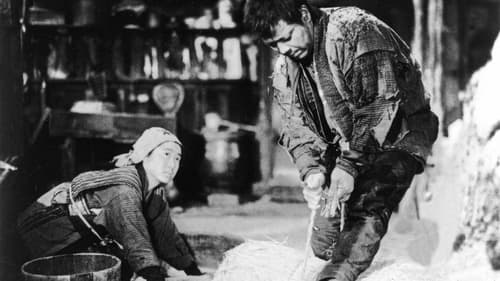
Keikichi's mother
Home drama about tin craftsmen and their families in downtown Tokyo. Though poor, they do not lose their cheerfulness or give in to oppression.

Female Teacher of the Girl Reform School
Two women, an undercover cop, and a leader of the group of rude girls, defy the smuggling syndicate.

Masae Murata
Tired of poverty, Keiko leaves home and soon takes a lover, but leads a wanton life without paying heed to his advice. However, the younger sister Yoshiko, is an innocent and kind girl. One day, with the sudden death of their mother in a car accident, Keiko learns that she and Yoshiko are actually stepsisters, and that she is the daughter of a murderer. She now plans extortion from Yoshiko's true father who is the president of a well-known trading company.

Admiral Isoroku Yamamoto leads the Combined Fleet of the Imperial Japanese Navy to defeat the American Fleet.

The day to day life in an establishment for delinquent teenage girls.

Masaki's grandmother
Based on the novel by Kojin Shimomura. Story of a young boy and his adventures in the country. His idyllic life is shattered by the illness and death of his mother.

Japanese comedy film.

Japanese drama film.

Akune's grandmother
Romantic melodrama

Tobacco shop landlady
A film by Kiyoshi Saeki

Kôfuku eno shôtai - Invitation to happiness

Minowada, a young teacher at a National People's School, has his own theory of education and the daughter of his linguistics teacher becomes drawn to him. Kayo, a strong-willed doctor, is also attracted to him. A mediator tries to arrange a marriage but just at that point Minowada receives military call-up papers.

Tami
Поставленный по одноимённому роману Такаси Нагацука, фильм с глубокой любовью к крестьянину рассказывает о чудовищной эксплуатации , которой подвергают его хозяева земли — феодалы. В центре повествования бедный вдовец-крестьянин Кандзи, который изо всех сил пытается заработать на жизнь для себя и своей дочери, а также выплатить долги своему тестю, которого он ненавидит.

"Around the time he made such remarkably ambivalent war films as Mud and Soldiers and Five Scouts, Tasaka directed this 'home front' comedy-drama which is too bizarre to be serious propaganda. [The plot revolves around a public contribution campaign to buy airplanes.] The mayor's aviator son promises to fly over the village in salute, and much of the narrative concerns the preparations for this great event. Tasaka throws in a few songs, some village humor and satire, and tremendous camera mobility, finally wringing every possible effect from his climax." John Gillett, British Film Institute







